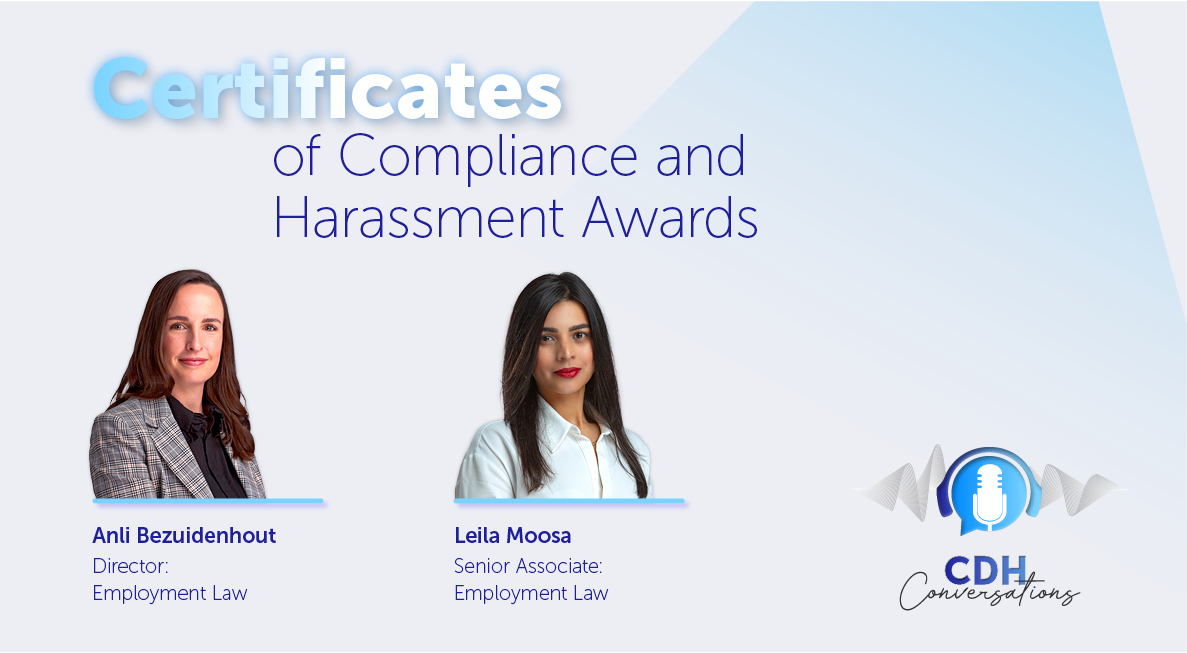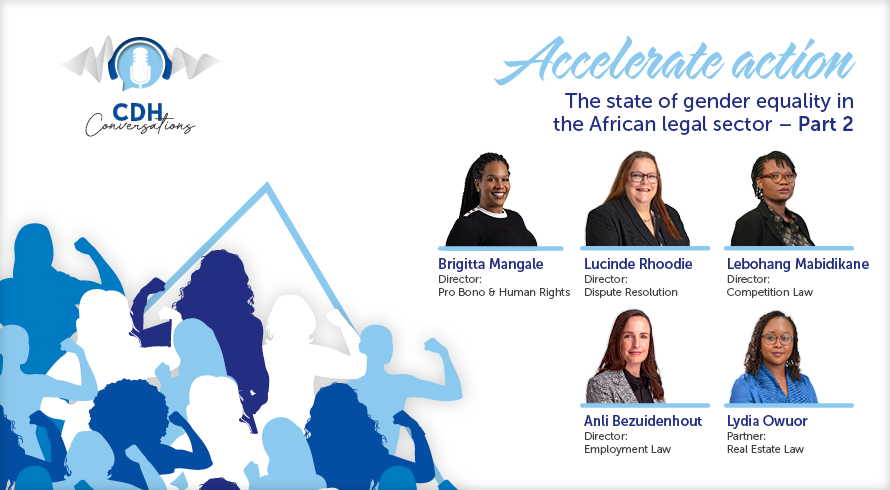Court addresses the deductibility of research and development tax incentives
In an attempt to encourage research and development in South Africa, s11D of the Income Tax Act, No 58 of 1962 (Act) was introduced to provide a research and development tax incentive which seeks to encourage and incentivise private sector investment in the research and development of scientific or technological activities. This particular tax incentive ensures that research and development activities are conducted within South Africa with the ultimate goal of indirectly stimulating the economy.
Under the provisions of s11D of the Act, two types of tax deductions are allowable. First, the 150% deduction of expenditure incurred directly for research and development purposes and secondly, an accelerated depreciation deduction for capital expenditure incurred on any building or part thereof, machinery, plant, implement, utensil or article used for research and development purposes.
However, in order to qualify for the tax incentive, a taxpayer must meet various stringent requirements relating to the taxpayer, the particular expenditure, and the research and development activities.
An interesting judgement, in relation to the deductibility of the research and development incentive, was handed down by the Tax Court, Cape Town (Court) on 20 April 2015, in the matter of ABC (Pty) Ltd v Commissioner for the South African Revenue ServiceIT13541.
The facts of the case are that ABC (Pty) Ltd (Appellant), a wholly-owned operating subsidiary of ABC Ltd, has been in the business of conducting software research and development for 27 years. The Appellant develops software programs for its customers that are designed to meet the specific customer's particular needs.
The nature of the Appellant's business is such that research and development is an integral part of its activities and a major source of its income is earned through licence fees calculated on the number of transactions the software utilises.
It is undisputed that during the 2010 year of assessment, the Appellant funded research and development in the course of its operations, and it incurred expenditure in the sum of R19,968 ,378. Initially, the Appellant claimed the actual expenditure incurred in respect of research and development as a deduction. The Commissioner for the South African Revenue Service (Respondent) allowed this deduction under the provisions of s11(a) of the Act. During the period between September and December 2011, the Appellant requested that the assessment be re-opened and claimed additional expenditure allowed for research and development in terms of s11D. The additional deduction amounted to R3,290,968.
The Respondent disallowed the additional 50% claimed for research and development expenditure in terms of the provisions of s11D of the Act and issued a revised additional assessment on 2 March 2012. The Appellant objected to the additional assessment and the Respondent disallowed the objection in its entirety. The Appellant then appealed against the Respondent's decision and the matter was referred to the Court.
The crucial issue in this appeal was whether the Appellant could claim 150% for the research and development expenditure incurred in respect of computer programs designed for its various customers, in terms of s11D of the Act, as it applied to its 2010 year of assessment. The Court therefore had to consider whether the expenditure incurred by the Appellant, as contemplated in s11D(1)(b)(iii) of the Act, is precluded by s11D(5)(b) because it related to 'management or internal business processes'.
Section 11D(1)(b)(iii) of the Act, as it applied to the Appellant's 2010 year of assessment, provides that:
"For the purposes of determining the taxable income derived by a taxpayer from carrying on any trade there shall be allowed as a deduction from the income of such taxpayer so derived, an amount equal to 150 per cent of so much of any expenditure actually incurred by that taxpayer directly in respect of activities undertaken in the Republic directly for purposes of…the devising, developing or creation of any…computer program as defined in section 1 of the Copyright Act, 1978 (Act No. 98 of 1978), if that information, invention, design, computer program or knowledge is of a scientific or technological nature, and is intended to be used by the taxpayer in the production of his or her income or is discovered, devised, developed or created by the taxpayer for purposes of deriving income"
Section 11D(5)(b) of the Act, as it applied to the Appellant's 2010 year of assessment, further provides that:
"Notwithstanding any other provision of this section, no deduction shall be allowed in terms of subsection (1) or (2) in respect of expenditure or costs relating to…management or internal business processes…"
The Appellant contended that it was entitled to the 150% deduction for research and development expenditure incurred, as the 'management or internal business processes', envisaged in s11D(5)(b), are limited to the 'management or internal business processes' of the Appellant and excludes the users for which the computer programs were developed. Accordingly, the Appellant contended that the limitations set out in s11D(5) of the Act, relate to expenditure incurred by a taxpayer in the course of its own business operations, which cannot be considered for the s11D deduction, where the expenditure was incurred by the taxpayer itself.
The Respondent conceded on the point that the expenditure referred to in section 11D(5) can only be the expenditure of the Appellant but disagreed with the Appellant that the 'management or internal business processes' can only be those of the Appellant. According to the Respondent, the ambit of s11D(5) is not limited in the way contended by the Appellant and may well include the users for which the programs were developed by the Appellant on a customised basis.
In light of the above, the Court held that based on statutory interpretation, it must be accepted that the intention of s11D is to incentivise the development of innovative computer programs but not where those relate to, among other things, 'management or internal business processes'.
Having regard to the statutory interpretation of the words 'management or internal business processes' and the provisions of the South African Revenue Service (SARS) Interpretation Note No. 50, published on 28 August 2009, the Court held that the Appellant's interpretation of the prohibition under s11D(5) of the Act was wrong for two reasons:
-
The words 'of the taxpayer' after 'management and internal business processes' have specifically been excluded by the legislature and cannot be read into the prohibition; and
-
The Appellant's interpretation of s11D(5) would render the prohibition so narrow that it would be nugatory.
The Court therefore concluded that the Respondent's interpretation of s11D(5) was correct to the effect that the internal business processes are not restricted to the Appellant's internal business processes but apply to the nature of the computer program.
The Court further held that "it must be accepted that section 11D creates a class privilege for certain categories of research and development expenditure, by permitting the deduction of 150% thereof, whereas the norm is that only the actual amount of qualifying expenditure can be deducted". Accordingly, s11D(5) of the Act places a curb on the class privilege available to such categories of research and development.
The Respondent further argued that the Appellant was not entitled to entitled to a 150% deduction in terms of s11D as section 23B(3) of the Act precluded the taxpayer from claiming a deduction under s11(1) of the Act and s11D of the Act. The Respondent contended that either s11D of the Act applies to justify a deduction of 150% of the expenditure in question or, if s11D does not apply, section 11(a) applies. The Court held in this regard that the Respondent's contention was correct.
Accordingly, the appeal was dismissed.
This judgement is important as it proves that the process in claiming research and development tax incentives can become quite technical. The interpretation and implementation of s11D of the Act requires expert knowledge on the principles of tax law and taxpayers are therefore advised to seek legal advice to assist in documenting the relevant technical information required by SARS to support their research and development claim.
The information and material published on this website is provided for general purposes only and does not constitute legal advice. We make every effort to ensure that the content is updated regularly and to offer the most current and accurate information. Please consult one of our lawyers on any specific legal problem or matter. We accept no responsibility for any loss or damage, whether direct or consequential, which may arise from reliance on the information contained in these pages. Please refer to our full terms and conditions. Copyright © 2026 Cliffe Dekker Hofmeyr. All rights reserved. For permission to reproduce an article or publication, please contact us cliffedekkerhofmeyr@cdhlegal.com.
Subscribe
We support our clients’ strategic and operational needs by offering innovative, integrated and high quality thought leadership. To stay up to date on the latest legal developments that may potentially impact your business, subscribe to our alerts, seminar and webinar invitations.
Subscribe



